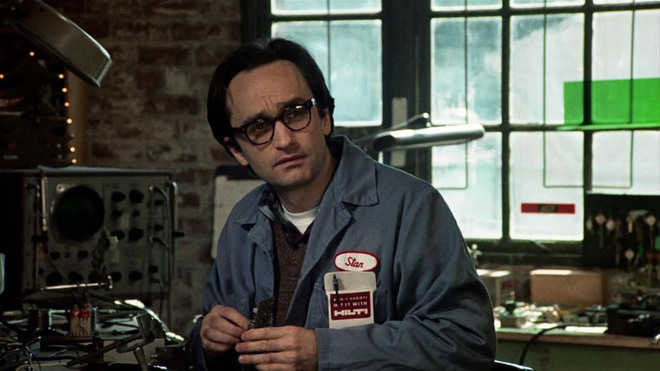Shardul Bhardwaj
“I learned more about acting from John than anybody”
— Al Pacino, actor and filmmaker
The beautiful blue waters of Lake Tahoe nestled between white mountains of Sierra Nevada and the silhouette of John Holland Cazale against the setting sun in Godfather II (1974), the constricted humid space of the bank and the “scared dog,” who bites John Holland Cazale of Dog Day Afternoon (1975); the basement of a private detective bent upon piecing together bits of recorded conversation and John Holland Cazale’s look when he is told that his work is getting sloppy in The Conversation (1974). These are a few of the many moments of the most human vulnerabilities ever played by an actor in Hollywood.
It is often said about John Cazale, who died exactly 40 years ago from this year from cancer, that he would begin work on a character by looking for that deep chasm where the character hurts the most. His role as Fredo in The Godfather reveals that he was somehow ahead of just the becoming of a character which had seem to come in vogue in the world of acting in the 1970s. He could construct a role in a film with the narrative and the craft of cinema in mind, in short, he was aware of the craft.
Starting from where the character hurts the most, he would be aware of how and where the character’s innermost world should be revealed in terms of the visual narrative. His eyes announce his presence in Godfather almost after the first half an hour of the film as he sits and cries on the sidewalk when Marlon Brando is shot. He reveals the lost boy helplessly looking upon himself as his father lies in a pool of blood after an assassination attempt.
To play a role is to stop judging the character as an actor, and John Cazale just did that. The want to be seen is ingrained in the world of acting. When Dustin Hoffman asked the great British actor Laurence Olivier, “Why do we act?” He replied, “Look at me. Look at me.” Most actors when playing vulnerability like to show that it’s a strong man playing vulnerability.
In the history of cinema, there have been very few actors who have been able to do what John Cazale could in the five films he acted in: play the vulnerability without making a show of it.
That big forehead of his was as beautiful as the blue waters of Lake Tahoe, and probably held more depth than Lake Tahoe itself. It just seems a befitting tribute that when President Obama saw Lake Tahoe at the end of his presidency, he remarked, “Poor Fredo”. We today can only guess how John Cazale dived into the depths of human nature and always came out a human being. Maybe, it was through his intelligence, observation and the understanding of the craft of acting that makes us want to imagine the wondrous work he could have produced if he was alive. Israel Horovitz, the great theatre director and playwright, remarked upon Cazale’s death, “John Cazale happens once in a lifetime. He was an invention, a small perfection.”
Unlock Exclusive Insights with The Tribune Premium
Take your experience further with Premium access.
Thought-provoking Opinions, Expert Analysis, In-depth Insights and other Member Only Benefits
Already a Member? Sign In Now










